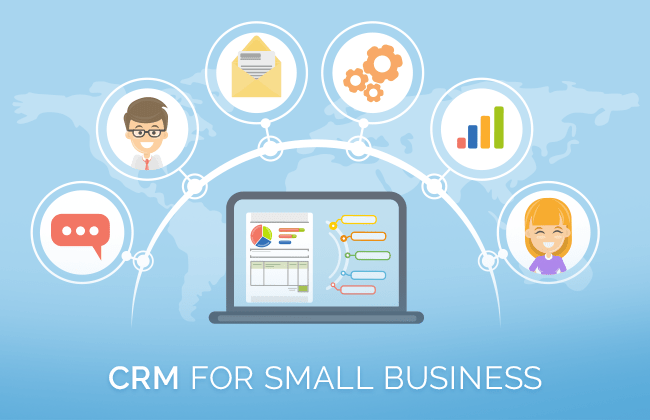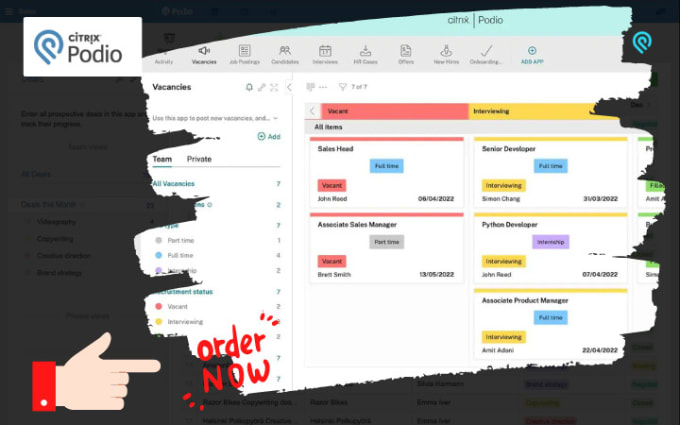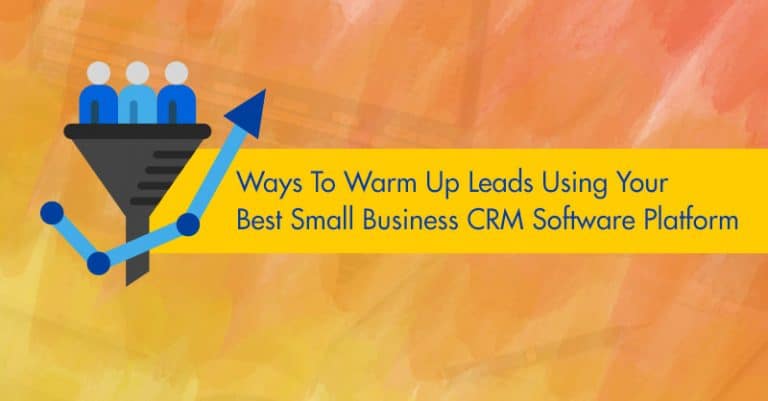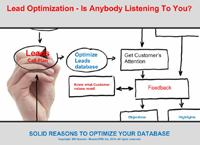
Small Business CRM Security in 2025: Protecting Your Data and Future
The year is hurtling towards 2025, and for small businesses, the digital landscape is becoming increasingly complex, particularly when it comes to safeguarding crucial customer data. Customer Relationship Management (CRM) systems are no longer just a luxury; they’re the lifeblood of many small businesses. They house everything from contact information and sales pipelines to customer interactions and financial records. But with great power comes great responsibility, and in this case, that responsibility is securing your CRM against an ever-evolving threat landscape. This comprehensive guide delves into the critical aspects of small business CRM security in 2025, providing you with actionable insights and strategies to protect your business, your customers, and your future.
The Rising Tide of Cyber Threats: Why CRM Security Matters More Than Ever
The digital world is a battleground, and small businesses are often seen as the low-hanging fruit for cybercriminals. Why? Because they often lack the robust security infrastructure of larger corporations and may not have the resources to dedicate to cybersecurity. This vulnerability makes them prime targets for a variety of attacks, each designed to exploit weaknesses and steal valuable data. In 2025, these threats will continue to evolve, becoming more sophisticated and more frequent.
Common Threats Facing Small Businesses
- Ransomware: This remains a major threat. Criminals encrypt your data and demand a ransom for its release. CRM systems, with their wealth of sensitive information, are particularly attractive targets.
- Phishing Attacks: These attacks trick employees into revealing login credentials or installing malware. They are becoming increasingly targeted and difficult to detect.
- Data Breaches: These can occur through various means, from hacking to insider threats. The consequences can be devastating, including financial losses, reputational damage, and legal repercussions.
- Malware Infections: Malicious software can infiltrate your systems, stealing data, disrupting operations, and even taking control of your CRM.
- Insider Threats: Not all threats come from outside. Disgruntled employees or those with malicious intent can intentionally or unintentionally compromise your data.
The consequences of a security breach can be catastrophic. Beyond the immediate financial losses, a breach can erode customer trust, damage your reputation, and lead to costly legal battles. In 2025, the stakes are higher than ever. The increasing reliance on digital platforms, the growing sophistication of cyberattacks, and the ever-evolving data privacy regulations demand a proactive and comprehensive approach to CRM security.
Building a Secure CRM Environment: Key Strategies for 2025
Securing your CRM isn’t just about installing a piece of software; it’s about building a culture of security and implementing a multi-layered approach. Here’s a breakdown of the key strategies you need to adopt in 2025:
1. Choose the Right CRM Platform
The foundation of your security strategy starts with selecting a CRM platform that prioritizes security. Look for providers that offer the following:
- Strong Encryption: Data encryption is essential, both in transit and at rest. Ensure the platform encrypts data using industry-standard protocols.
- Multi-Factor Authentication (MFA): MFA adds an extra layer of security by requiring users to verify their identity through multiple methods, such as a password and a code from a mobile device.
- Regular Security Audits: The CRM provider should conduct regular security audits to identify and address vulnerabilities.
- Compliance Certifications: Look for platforms that comply with relevant data privacy regulations, such as GDPR and CCPA.
- Data Backup and Recovery: Ensure the platform offers robust data backup and recovery options to protect against data loss.
Consider the security features offered by different platforms and choose the one that best meets your needs and budget. Don’t be afraid to ask potential vendors about their security practices and certifications.
2. Implement Strong Access Controls
Controlling who has access to your CRM data is crucial. Implement the following measures:
- Role-Based Access Control (RBAC): Assign users specific roles with predefined permissions. This limits access to only the data and functionalities they need.
- Strong Passwords: Enforce strong password policies that require a combination of upper and lowercase letters, numbers, and special characters. Regularly update passwords.
- Regular Access Reviews: Periodically review user access permissions to ensure they are still appropriate. Remove access for former employees or those who no longer need it.
- Least Privilege Principle: Grant users the minimum level of access necessary to perform their job duties.
3. Train Your Employees
Your employees are your first line of defense against cyber threats. Provide comprehensive security awareness training that covers the following topics:
- Phishing Awareness: Teach employees how to identify and avoid phishing attempts.
- Password Security: Emphasize the importance of strong passwords and password management.
- Data Privacy: Educate employees on data privacy regulations and how to handle sensitive customer information.
- Social Engineering: Train employees to recognize and avoid social engineering tactics.
- Reporting Procedures: Establish clear procedures for reporting security incidents.
Regular training and updates are essential to keep employees informed about the latest threats and best practices. Consider conducting simulated phishing exercises to test their awareness.
4. Data Encryption and Protection
Data encryption is a cornerstone of CRM security. Implement encryption at all levels:
- Encryption in Transit: Use HTTPS to encrypt data transmitted between users and the CRM platform.
- Encryption at Rest: Ensure that data stored on the CRM platform’s servers is encrypted.
- Data Loss Prevention (DLP): Implement DLP measures to prevent sensitive data from leaving your organization.
- Tokenization: Consider using tokenization to protect sensitive data, such as credit card numbers.
5. Regularly Back Up Your Data
Data backups are your lifeline in the event of a data breach, system failure, or ransomware attack. Implement a robust backup strategy:
- Automated Backups: Automate your backup process to ensure regular and consistent backups.
- Offsite Backups: Store backups offsite, preferably in a secure cloud environment.
- Backup Verification: Regularly test your backups to ensure they are working correctly and can be restored successfully.
- Retention Policies: Establish clear retention policies for your backups to comply with data privacy regulations.
6. Monitor and Detect Threats
Proactive monitoring is crucial for identifying and responding to security threats in a timely manner:
- Security Information and Event Management (SIEM): Consider implementing a SIEM system to collect and analyze security logs, detect anomalies, and generate alerts.
- Intrusion Detection and Prevention Systems (IDPS): Deploy IDPS to monitor network traffic and identify malicious activity.
- Vulnerability Scanning: Regularly scan your systems and applications for vulnerabilities.
- Incident Response Plan: Develop a comprehensive incident response plan that outlines the steps to take in the event of a security breach.
7. Stay Updated with Security Patches and Updates
Software vendors regularly release security patches and updates to address vulnerabilities. Keep your CRM platform and all related software up to date:
- Automated Updates: Enable automated updates whenever possible.
- Patch Management: Implement a patch management process to ensure that patches are applied promptly.
- Security Alerts: Subscribe to security alerts from your CRM platform provider and other relevant sources.
Emerging Technologies and Trends in CRM Security for 2025
The landscape of CRM security is constantly evolving, with new technologies and trends emerging all the time. Here are some key developments to watch out for in 2025:
1. Artificial Intelligence (AI) and Machine Learning (ML)
AI and ML are playing an increasingly important role in cybersecurity. They can be used to:
- Detect and Prevent Threats: AI and ML algorithms can analyze vast amounts of data to identify and respond to threats in real-time.
- Automate Security Tasks: AI can automate repetitive security tasks, such as vulnerability scanning and threat detection.
- Improve User Behavior Analytics: AI can analyze user behavior to detect anomalies and identify potential insider threats.
As AI and ML become more sophisticated, they will play an even greater role in securing CRM systems.
2. Zero Trust Security Model
The Zero Trust security model assumes that no user or device, whether inside or outside the network, can be trusted by default. This model requires:
- Multi-Factor Authentication: MFA is a cornerstone of Zero Trust.
- Microsegmentation: Dividing the network into smaller segments to limit the impact of a breach.
- Continuous Monitoring: Constant monitoring of user activity and system behavior.
- Context-Aware Access: Granting access based on user identity, device posture, and other contextual factors.
The Zero Trust model is becoming increasingly popular as organizations seek to protect their data from sophisticated threats.
3. Blockchain Technology
Blockchain technology can be used to secure CRM data in several ways:
- Data Integrity: Blockchain can be used to create an immutable record of CRM data, making it tamper-proof.
- Identity Management: Blockchain can be used to create secure and decentralized identity management systems.
- Supply Chain Security: Blockchain can be used to track and secure data throughout the supply chain.
While still in its early stages, blockchain technology has the potential to revolutionize CRM security.
4. Increased Focus on Data Privacy
Data privacy regulations, such as GDPR and CCPA, are becoming stricter. In 2025, organizations will need to:
- Comply with Data Privacy Regulations: Ensure that their CRM systems comply with all relevant data privacy regulations.
- Implement Data Minimization: Collect and store only the data that is necessary.
- Give Users Control Over Their Data: Provide users with control over their data, including the ability to access, modify, and delete their information.
- Data Anonymization and Pseudonymization: Implement techniques to protect sensitive data.
Data privacy will continue to be a top priority for businesses in 2025.
Choosing the Right CRM Security Solutions: A Step-by-Step Guide
Implementing a robust CRM security strategy can seem daunting, but it doesn’t have to be. Here’s a step-by-step guide to help you choose the right solutions for your small business:
1. Assess Your Risks
Start by conducting a thorough risk assessment. Identify the potential threats to your CRM data and the vulnerabilities in your current security posture. Consider the following:
- What type of data do you store in your CRM?
- Who has access to your CRM data?
- What are your biggest security concerns?
- What are the potential consequences of a data breach?
This assessment will help you prioritize your security efforts and choose the right solutions.
2. Evaluate Your CRM Platform
If you haven’t already, evaluate your current CRM platform’s security features. Does it offer the security features mentioned earlier, such as encryption, MFA, and regular security audits? If not, consider switching to a more secure platform.
3. Implement Security Measures
Based on your risk assessment and CRM platform evaluation, implement the security measures discussed earlier, such as strong access controls, employee training, data encryption, and regular backups.
4. Choose Security Tools and Services
There are many security tools and services available to help you protect your CRM data. Consider the following:
- Password Managers: Help employees create and manage strong passwords.
- Multi-Factor Authentication (MFA) Solutions: Enable MFA for all users.
- Endpoint Detection and Response (EDR): Provides real-time threat detection and response for your devices.
- Security Information and Event Management (SIEM): Collect and analyze security logs.
- Managed Security Services Providers (MSSPs): Consider outsourcing your security to an MSSP if you lack the internal resources.
5. Monitor and Review
Regularly monitor your security posture and review your security measures. Conduct regular vulnerability scans and penetration tests to identify and address weaknesses. Stay informed about the latest threats and adapt your security strategy accordingly.
The Human Element: Cultivating a Security-Conscious Culture
Technology is only one piece of the puzzle. Creating a security-conscious culture is equally important. This involves:
- Security Awareness Training: Ongoing training to educate employees about security threats and best practices.
- Clear Policies and Procedures: Develop and communicate clear security policies and procedures.
- Regular Communication: Keep employees informed about the latest security threats and updates.
- Reporting Mechanism: Establish a clear and easy way for employees to report security incidents or concerns.
- Encouraging Vigilance: Foster a culture where employees are vigilant and proactive about security.
A security-conscious culture can significantly reduce the risk of human error and insider threats.
The Future of Small Business CRM Security: What to Expect
Looking ahead to 2025 and beyond, several trends will shape the future of small business CRM security:
- Increased Automation: AI and ML will automate more security tasks, such as threat detection and incident response.
- Greater Emphasis on Data Privacy: Data privacy regulations will become stricter, and businesses will need to prioritize data privacy.
- More Sophisticated Threats: Cybercriminals will continue to develop more sophisticated attacks.
- Increased Use of Cloud-Based Security Solutions: Cloud-based security solutions will become more prevalent.
- Focus on Zero Trust Security: The Zero Trust security model will become more widely adopted.
Small businesses that embrace these trends and proactively invest in security will be well-positioned to protect their data and thrive in the years to come.
Conclusion: Securing Your CRM for a Secure Future
In the rapidly evolving digital landscape of 2025, CRM security is no longer optional; it’s essential for the survival and success of your small business. By implementing the strategies outlined in this guide, you can protect your valuable customer data, build trust with your customers, and safeguard your future. Remember that security is an ongoing process, not a one-time fix. Stay vigilant, stay informed, and continuously adapt your security strategy to meet the ever-changing challenges of the digital world. Investing in CRM security today is an investment in your business’s future. Don’t wait until it’s too late to protect what matters most.


